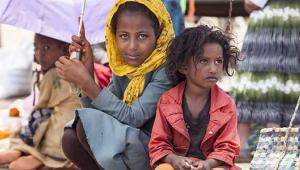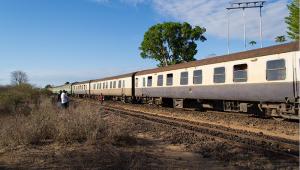Some $64m of the disbursement will go to crises in Central and Eastern Africa. The funds will help an estimated 1.7 million refugees, internally displaced people in Burundi ($13m), Ethiopia ($11m), Kenya ($4m), Sudan ($7m), Tanzania ($11m) and Uganda ($18m).
A further $28m has been allocated to relief agencies in Libya ($12m) and Mali ($16m) to address the humanitarian needs of more than 600,000 people affected by conflict and food security. The final $8m will support life-saving humanitarian assistance for more than 2.2 million people in North Korea, including urgent nutrition assistance for 1.8 million children.
“With so many crises competing for attention around the world many people in need are forgotten,” said Stephen O’Brien, the UN emergency relief coordinator.
“These grants will help sustain life-saving assistance and protection in emergencies where the needs of the most vulnerable communities are alarmingly high but the resources enabling us to respond remain low.”
UN secretary general Ban Ki-Moon announced the allocation, which will come from the UN’s Central Emergency Response Fund, on Friday.
“This funding is a lifeline for the world’s most vulnerable people. It is a concrete demonstration of our shared commitment to leave no one behind,” he said.
Meanwhile, the UN and the government of Iraq have called for international help to respond to a growing humanitarian crisis in the war-torn country, appealing for $891m to support 7.3 million Iraqis.
Ten million Iraqis, or one third of the population, urgently require some form of humanitarian assistance, a figure which is expected to rise. Up to 3.3 million people have fled their homes and thousands are trapped in areas under siege by combatant forces.
More than one million displaced people have sought safety in the Kurdistan region, along with most of the country’s 250,000 Syrian refugees.
The government have channelled $667m into a humanitarian response plan which aims to register vulnerable people and provide them with legal protection and adequate shelter, address food insecurity and support education, health and cash assistance programmes.
However there is an estimated deficit of $891m. More than 90 humanitarian organisations, including international and national NGOs, UN agencies and international organisations have projects in the plan.
“The national effort to address the humanitarian crisis in Iraq is impressive, involving the federal government, the Kurdish authorities and civil society,” said Lise Grande, the UN’s humanitarian coordinator in Iraq.
“With needs outstripping national capacities, international action and engagement are essential to help people in trouble, particularly in the coming months as we expect the crisis to widen and worsen,” she said.







